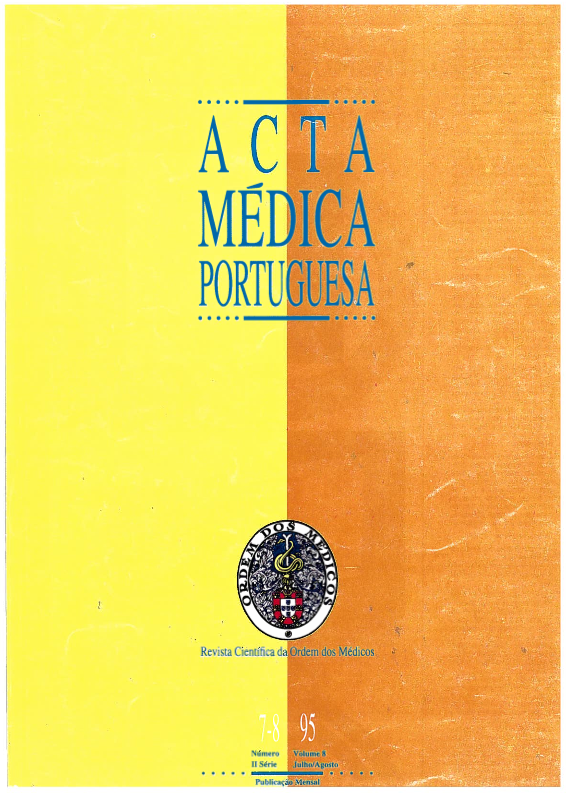Aplicações da aprendizagem por problemas no ciclo básico do curso de medicina.
DOI:
https://doi.org/10.20344/amp.2721Resumo
This article describes a project, which took place between 1992 and 1994, on the application of problem-based learning to three disciplines of the basic medical curriculum: Biochemistry (1st year) Physiology (2nd year) and physiopathology (3rd year). The main objectives of the project were to bring teaching closer to the future professional reality, to stimulate critical thinking and to facilitate independent learning. Despite differences in content and in teaching materials, the trigger event for learning was information given within a clinical context which was further analyzed in small-group tutorial sessions. The project also included the training of the tutors and the development of audiovisual materials. Although no statistically significant differences were found in the final scores between students taught during this period and before, the first group reported a considerable increase in the motivation to learn which, in the case of Biochemistry, was important to change the passive attitude of most students on entering university. The project also helped to create the appropriate atmosphere for the establishment of an office for medical education in the medical school to support other innovations in the field. With this project we wished to contribute, with a concrete experience, to the reform of medical education in Portugal, by demonstrating that problem-based learning can be used in single disciplines without major changes in the basic curriculum.Downloads
Downloads
Como Citar
Edição
Secção
Licença
Todos os artigos publicados na AMP são de acesso aberto e cumprem os requisitos das agências de financiamento ou instituições académicas. Relativamente à utilização por terceiros a AMP rege-se pelos termos da licença Creative Commons ‘Atribuição – Uso Não-Comercial – (CC-BY-NC)’.
É da responsabilidade do autor obter permissão para reproduzir figuras, tabelas, etc., de outras publicações. Após a aceitação de um artigo, os autores serão convidados a preencher uma “Declaração de Responsabilidade Autoral e Partilha de Direitos de Autor “(http://www.actamedicaportuguesa.com/info/AMP-NormasPublicacao.pdf) e a “Declaração de Potenciais Conflitos de Interesse” (http://www.icmje.org/conflicts-of-interest) do ICMJE. Será enviado um e-mail ao autor correspondente, confirmando a receção do manuscrito.
Após a publicação, os autores ficam autorizados a disponibilizar os seus artigos em repositórios das suas instituições de origem, desde que mencionem sempre onde foram publicados e de acordo com a licença Creative Commons









